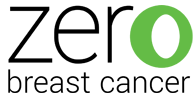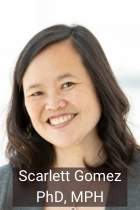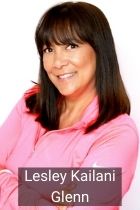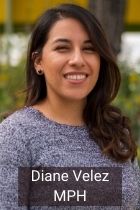Advancing Health Equity in Breast Cancer: Zero Breast Cancer's 25th Year Webinar Series
In honor of our 25th anniversary, Zero Breast Cancer proudly presented a series of webinars featuring researchers and community members that we have worked with on our mission to reduce the risk of breast cancer and disease recurrence, and to improve health and wellness for all. Since our early days of trying to figure out what causes breast cancer, ZBC has focused on those of us with higher risk and fewer resources. See below for more details about, slides from, and videos of our four webinars hosted in 2021.
- Bridging Researchers and Impacted Communities for Health Equity in Breast Cancer
- Our ZIP Codes & Breast Cancer: Working Together for Healthier Places
- Culture in Breast Cancer: Overcoming Unequal Obstacles
- Our Environment and Breast Cancer: Working for a Healthier Future
Bridging Researchers and Impacted Communities for Health Equity in Breast Cancer
January 28, 2021
By engaging people from communities impacted by breast cancer, research can be more relevant and have greater influence. Community members, including patients and caregivers, provide unique perspectives on their needs and priorities, and can help to translate and apply research findings.
ZBC has been facilitating community involvement in research throughout its 25 years. Join us to learn how cancer advocates and scientists are partnering to improve equity in prevention, treatment and quality of life, and how you can participate.
Featuring
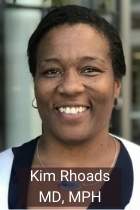 Kim Rhoads, MD, MPH, is Associate Director of Community Engagement for the UCSF Helen Diller Family Comprehensive Cancer Center (HDFCCC) and an Associate Professor of Epidemiology and Biostatistics at University of California, San Francisco (UCSF). She holds a Master’s degree in Public Health from the Harvard T.H. Chan School of Public Health where she studied healthcare policy and management with an emphasis on minority health disparities and leadership. Dr. Rhoads founded the Stanford Cancer Institute Community Partnership Program (now called Community Outreach and Engagement). She earned her MD from UCSF School of Medicine and a MS in Health and Medical Sciences from UC Berkeley. Although she no longer practices clinically, she is double boarded in general and colorectal surgery.
Kim Rhoads, MD, MPH, is Associate Director of Community Engagement for the UCSF Helen Diller Family Comprehensive Cancer Center (HDFCCC) and an Associate Professor of Epidemiology and Biostatistics at University of California, San Francisco (UCSF). She holds a Master’s degree in Public Health from the Harvard T.H. Chan School of Public Health where she studied healthcare policy and management with an emphasis on minority health disparities and leadership. Dr. Rhoads founded the Stanford Cancer Institute Community Partnership Program (now called Community Outreach and Engagement). She earned her MD from UCSF School of Medicine and a MS in Health and Medical Sciences from UC Berkeley. Although she no longer practices clinically, she is double boarded in general and colorectal surgery.
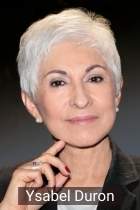 Ysabel Duron is a pioneering, award-winning Latina journalist, a cancer survivor, and for the last 20 years, one of the nation’s leading authorities in Latinx/Hispanic cancer education and advocacy. As a TV news anchor, she covered her own cancer battle on air. In 2003, she founded Latinas Contra Cancer, a nonprofit organization advocating for and serving the Latino community. Ms. Duron founded The Latino Cancer Institute (TLCI) in 2017, creating a nationwide network to develop and share best practice programs, increase global cancer research collaboration, and drive policy to solve the issues and burden of Latinx/Hispanic cancer. She serves as a patient/community advocate on multiple California and national boards, including NIH’s All of Us Study, and at multiple universities.
Ysabel Duron is a pioneering, award-winning Latina journalist, a cancer survivor, and for the last 20 years, one of the nation’s leading authorities in Latinx/Hispanic cancer education and advocacy. As a TV news anchor, she covered her own cancer battle on air. In 2003, she founded Latinas Contra Cancer, a nonprofit organization advocating for and serving the Latino community. Ms. Duron founded The Latino Cancer Institute (TLCI) in 2017, creating a nationwide network to develop and share best practice programs, increase global cancer research collaboration, and drive policy to solve the issues and burden of Latinx/Hispanic cancer. She serves as a patient/community advocate on multiple California and national boards, including NIH’s All of Us Study, and at multiple universities.
 Jasmine M. Wong, MD, is a breast cancer surgeon at the Carol Franc Buck Breast Care Center in the UCSF HDFCCC and San Francisco General Hospital. She supports the WISDOM Study (Women Informed to Screen Depending On Measures of risk), a multicenter clinical trial that came about after years of stakeholder engagement (including advocates) to determine the best approach to breast cancer screening. Dr. Wong received her undergraduate degree from Washington University in St. Louis and her medical degree from the St. Louis University School of Medicine. After her general surgery residency at Loma Linda University, she completed a fellowship in breast surgical oncology at UCSF before joining the faculty. Her research interests include ductal carcinoma in situ (DCIS) and the immune system.
Jasmine M. Wong, MD, is a breast cancer surgeon at the Carol Franc Buck Breast Care Center in the UCSF HDFCCC and San Francisco General Hospital. She supports the WISDOM Study (Women Informed to Screen Depending On Measures of risk), a multicenter clinical trial that came about after years of stakeholder engagement (including advocates) to determine the best approach to breast cancer screening. Dr. Wong received her undergraduate degree from Washington University in St. Louis and her medical degree from the St. Louis University School of Medicine. After her general surgery residency at Loma Linda University, she completed a fellowship in breast surgical oncology at UCSF before joining the faculty. Her research interests include ductal carcinoma in situ (DCIS) and the immune system.
Moderator
Catherine Thomsen, MPH, joined Zero Breast Cancer in 2014 to promote health and wellness and prevent cancer, after seven years facilitating efforts to engage advocates in cancer research and to fund studies of disparities and environmental risk factors with the California Breast Cancer Research Program (CBCRP). Previously, she was the epidemiologist for the State of Oregon’s environmental and occupational health programs and coordinated an interagency pesticide poisoning prevention program. She received her Master’s in Public Health from Portland State/Oregon Health & Sciences Universities and her BA in international relations from Pomona College. She studied in France and spent more than three years in rural and urban Costa Rica with the Peace Corps and USAID.
Our ZIP Codes & Breast Cancer: Working Together for Healthier Places
April 29, 2021
View the second Webinar in our Advancing Health Equity in Breast Cancer series to hear how where we live, work, and play affects breast cancer risk and outcomes. Where we spend time makes a difference for our access to healthy choices and quality health care. Some areas have safe places to walk, a supermarket with healthy, affordable food, and a supportive community. Others don’t, and that matters for our health. Our panel explored the importance of the built and social environments in cancer and how we can improve our health by working together.
Featuring
Scarlett Lin Gomez, PhD, MPH, is an epidemiologist with the University of California San Francisco researching the role of social determinants of health, including race/ethnicity, socioeconomic status, gender, immigration status, sociocultural factors, and neighborhood characteristics, on health outcomes. She is Director of the Greater Bay Area Cancer Registry. She has contributed data regarding cancer incidence and outcomes for distinct Asian American, Native Hawaiian, and Pacific Islander and Hispanic ethnic groups, as well as cancer patterns by nativity status and neighborhood characteristics. She developed the California Neighborhoods Data System, a compilation of small-area level data on social and built environment characteristics, and has used these data in more than a dozen funded studies to evaluate the impact of social and built neighborhood environment factors on disease outcomes.
Lesley Kailani Glenn’s passion, motivation and personal experience of living with metastatic breast cancer (MBC) for over 8 years, drive her desire to partner with others in order to fund research for a cure for, increase awareness of, and support those living with MBC. Prior to her MBC diagnosis, she received a bachelors of science in organizational leadership and brought therapeutic art to marginalized and incarcerated communities. She transferred her advocacy to MBC, mentoring others, receiving the LBCC Leadership Volunteer Award, co-founding Make Good Moves/Climb for a Cure, and serving as an advisor for the Love Research Army and as a reviewer for the DOD-CDMRP. She recently launched her largest endeavor, Project Life, a virtual wellness house for those living with MBC and their loved ones, as an Elevate Ambassador with the NCCS.
Diane Velez, MPH, currently leads ActiveSGV's CalFresh Healthy Communities program, where she oversees the largest Nutrition Education and Physical Activity project in the San Gabriel Valley. Diane began volunteering with the ActiveSGV in 2016 before joining as a staff member. Over the past several years she has also supported the 626 Golden Streets team, Safe Routes to School program, Chair of the Development team, and Women-on-Wheels (WoW) project, which aims to empower more girls and women to engage in health and wellness practices. Additionally, she serves on the Metro San Gabriel Valley Service Council and holds a Master of Public Health. Diane is passionate about improving community health and sustainability in the San Gabriel Valley, with a strong commitment to social justice and equity.
Moderator
Catherine Thomsen, MPH, joined Zero Breast Cancer in 2014 to promote health and wellness and prevent cancer, after seven years facilitating efforts to engage advocates in cancer research and to fund studies of disparities and environmental risk factors with the California Breast Cancer Research Program (CBCRP). Previously, she was the epidemiologist for the State of Oregon’s environmental and occupational health programs and coordinated an interagency pesticide poisoning prevention program. She received her Master’s in Public Health from Portland State/Oregon Health & Sciences Universities and her BA in international relations from Pomona College. She studied in France and spent more than three years in rural and urban Costa Rica with the Peace Corps and USAID.
Culture in Breast Cancer: Overcoming Unequal Obstacles
July 29, 2021
In the U.S., our health systems often assume that we have a common culture, including values, expectations and language. By paying attention to differences in culture, we can improve cancer prevention, screening, treatment and clinical trial participation to make our systems fairer. Watch to learn about research on culture and how organizations are meeting the needs of individuals and communities.
Featuring

Dr. Anna María Nápoles is the Scientific Director of the National Institute on Minority Health and Disparities (NIMHD) Division of Intramural Research, where she oversees all intramural research, with a focus on population health and an emphasis on social, behavioral, and clinical research. Previously, Dr. Nápoles served as a professor and behavioral epidemiologist in the Department of Medicine at the University of California San Francisco. She has over 30 years of experience in research on patient-clinician communication, cancer health disparities, psycho-oncology, and community-based research in racially, ethnically and socioeconomically diverse populations. Her work has included peer-delivered stress management interventions for Latinas with breast cancer that improved quality of life and reduced depression and anxiety symptoms. She is also developing and testing mobile health interventions to improve symptom management among diverse, low-income cancer survivors.
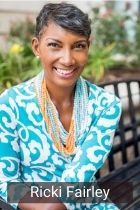
As a Stage 3A Triple Negative Breast Cancer Survivor/Thriver, Ricki Fairley co-founded and serves as CEO of TOUCH, The Black Breast Cancer Alliance. TOUCH addresses Black Breast Cancer as a unique and special disease state, with the goal of reducing the mortality rate for Black women and supporting what she calls her “Breasties” through their breast cancer experience. Ricki founded and serves as co-host for “The Doctor Is In,” a weekly live web series on the BlackDoctor.org Facebook page. She is a founding member of #BlackDataMatters, a collaborative to encourage and elevate the importance of Black Women participating in clinical trials. Ricki also proudly serves as a member of the board of trustees for the Triple Negative Breast Cancer Foundation.
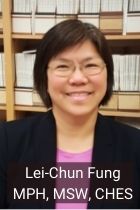 Lei-Chun Fung is the Health Educator at Chinatown Public Health Center with the San Francisco Department of Public Health. She is responsible for planning, developing, implementing, and evaluating innovative health education programs for the Chinese speaking community. In the early 1990s, Ms. Fung was instrumental in establishing what is believed to be the nation’s first Chinese-language cancer support group. Her cultural background and her fluency in Cantonese and Mandarin enhance her effectiveness as a community organizer, service provider and advocate for the community.
Lei-Chun Fung is the Health Educator at Chinatown Public Health Center with the San Francisco Department of Public Health. She is responsible for planning, developing, implementing, and evaluating innovative health education programs for the Chinese speaking community. In the early 1990s, Ms. Fung was instrumental in establishing what is believed to be the nation’s first Chinese-language cancer support group. Her cultural background and her fluency in Cantonese and Mandarin enhance her effectiveness as a community organizer, service provider and advocate for the community.
Moderator
Catherine Thomsen, MPH, joined Zero Breast Cancer in 2014 to promote health and wellness and prevent cancer, after seven years facilitating efforts to engage advocates in cancer research and to fund studies of disparities and environmental risk factors with the California Breast Cancer Research Program (CBCRP). Previously, she was the epidemiologist for the State of Oregon’s environmental and occupational health programs and coordinated an interagency pesticide poisoning prevention program. She received her Master’s in Public Health from Portland State/Oregon Health & Sciences Universities and her BA in international relations from Pomona College. She studied in France and spent more than three years in rural and urban Costa Rica with the Peace Corps and USAID.
Our Environment and Breast Cancer: Working for a Healthier Future
October 21, 2021
Many years of research show that toxic chemicals in the air we breathe, the food we eat, the water we drink, and the products we use are affecting our hormones. BIPOC and people with lower incomes are much more likely to live, learn and work in areas with greater exposure to these chemicals. Join us as we look at how our environment can increase our risk of breast cancer and how we can protect future generations.
Featuring
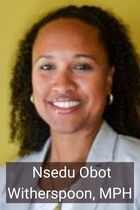 Nsedu Obot Witherspoon is the Executive Director for the Children’s Environmental Health Network (CEHN), where she organizes, leads and manages policy, education/training, and science-related programs. For more than 20 years, she has been a leader in and spokesperson for children’s environmental health. Nse is a Co-Leader the Health/Science initiative of the Cancer Free Economy Network and Co-Chair of the National Environmental Health Partnership Council. In addition to current and past positions on national and state boards and councils, Nse recently received the William R. Reilly Award in Environmental Leadership from the Center for Environmental Policy at American University. She has a B.S. in Biology from Siena College and a M.P.H. in Maternal and Child Health from George Washington University.
Nsedu Obot Witherspoon is the Executive Director for the Children’s Environmental Health Network (CEHN), where she organizes, leads and manages policy, education/training, and science-related programs. For more than 20 years, she has been a leader in and spokesperson for children’s environmental health. Nse is a Co-Leader the Health/Science initiative of the Cancer Free Economy Network and Co-Chair of the National Environmental Health Partnership Council. In addition to current and past positions on national and state boards and councils, Nse recently received the William R. Reilly Award in Environmental Leadership from the Center for Environmental Policy at American University. She has a B.S. in Biology from Siena College and a M.P.H. in Maternal and Child Health from George Washington University.
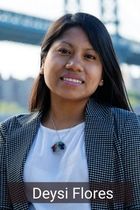
Deysi Flores is the senior coordinator of the Workers Health and Safety Program at Make the Road New York. She oversees operations, including training, logistics, curriculum development, quality control, and participatory research projects. Deysi builds and maintains relations with other health & safety programs. She is a Co-Principal Investigator for the Safe and Just Cleaners project, community-based participatory research documenting cleaning chemicals exposure among Latinx house cleaners in New York, funded by NIEHS. As a senior staff member in the health department and member of the Workers’ Rights team, she provides technical knowledge and support to the various campaigns. Previously, she worked with vulnerable communities on educational and social projects in Latin America.
Moderator
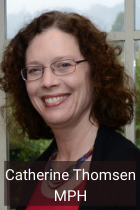
Catherine Thomsen, MPH, joined Zero Breast Cancer in 2014 to promote health and wellness and prevent cancer, after seven years facilitating efforts to engage advocates in cancer research and to fund studies of disparities and environmental risk factors with the California Breast Cancer Research Program (CBCRP). Previously, she was the epidemiologist for the State of Oregon’s environmental and occupational health programs and coordinated an interagency pesticide poisoning prevention program. She received her Master’s in Public Health from Portland State/Oregon Health & Sciences Universities and her BA in international relations from Pomona College. She studied in France and spent more than three years in rural and urban Costa Rica with the Peace Corps and USAID.
